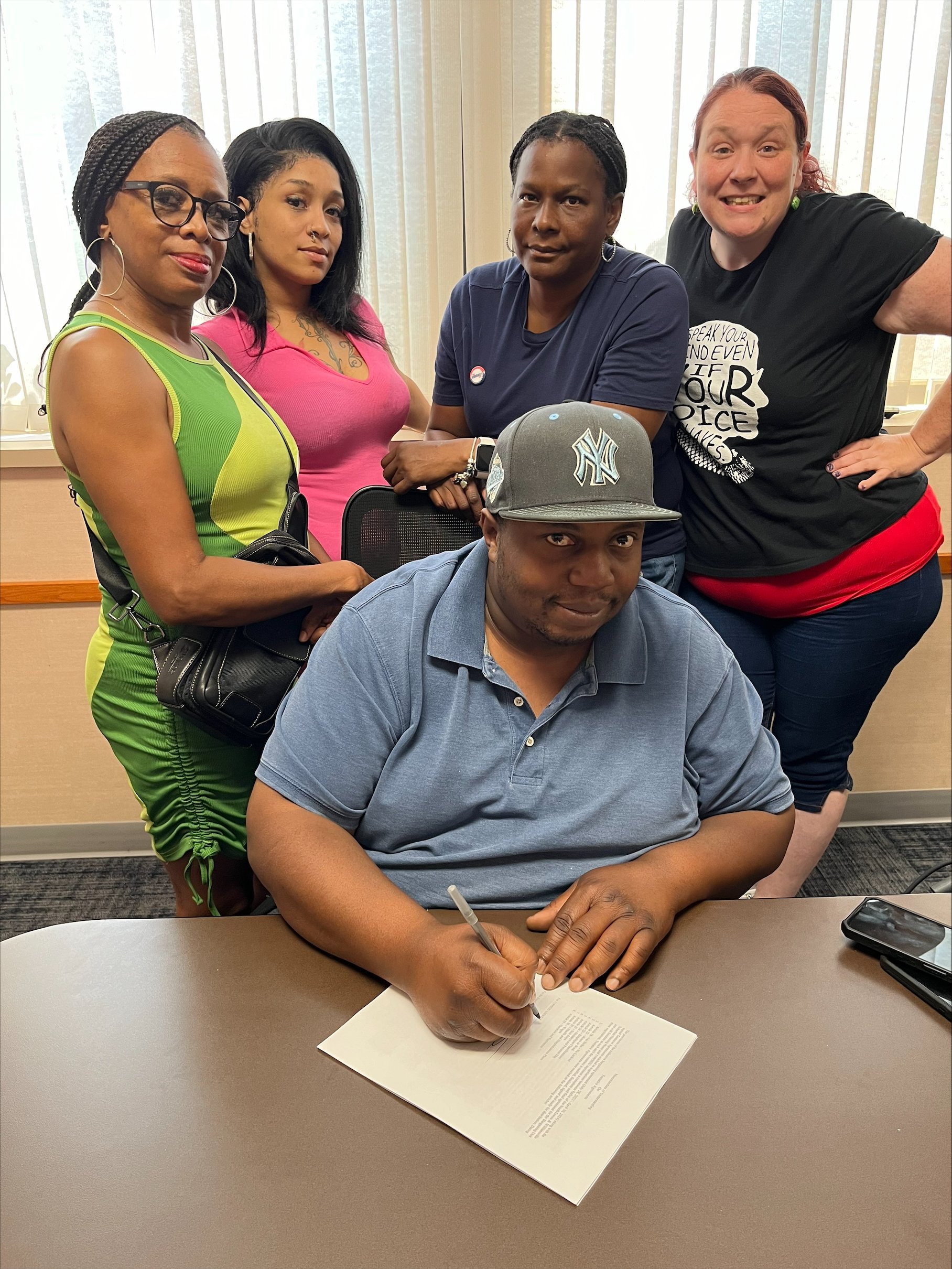Facing Strike, Buffalo Nursing-Home Owner Signs Contract He’d Reneged On
Buffalo-era nurses have a new one-year contract after resolving to strike against the boss. Photo courtesy of 1199SEIU
By Steve Wishnia
A strike at two Buffalo-area nursing homes has been averted after the main owner agreed Aug. 26 to sign a contract he’d previously reneged on.
Solomon Abramczyk, a co-owner of Williamsville Suburban Care Center in Buffalo and Safire Rehabilitations of Northtowns in Tonawanda, agreed to sign the one-year agreement after “a brief conversation with union negotiators and the worker-led bargaining committee,” 1199SEIU, the union representing the about 170 workers, said in a statement.
The workers had scheduled a 24-hour unfair-labor-practice strike beginning at 6 a.m. Aug. 28.
“It was unfortunate that the employer refused to sign the tentative agreement reached in negotiations,” Grace Bogdanove, 1199SEIU’s vice-president for nursing homes in Western New York, said in a statement to Work-Bites. “Despite our best efforts to resolve this at the table, it was only after 1199 members stood together with a near-unanimous strike vote that this employer agreed to sign—just days in advance of our strike date.”
The deal had been reached in early July, but management at the for-profit facilities refused to sign it shortly afterwards, claiming that it would cost too much. It objected to a provision giving experience pay to certified nursing assistants and licensed practical nurses—a 2% raise for each year of experience, up to 20% more after 10 years.
In exchange for Abramczyk signing the contract, 1199SEIU will withdraw the unfair-labor-practice charge it filed with the National Labor Relations Board in July, accusing the employer of bargaining in bad faith.
Workers at both facilities voted to ratify the contract, the union announced Aug. 29. Wage increases will range from 3% to 32%, with an average raise of 7%, 1199SEIU said. The agreement will increase starting rates for all job titles and include experience-based pay for all current and newly hired workers. Workers with less than 10 years of experience will get an extra 3%, while those with more than 10 years will get a minimum of 4.25%.
They also won Martin Luther King Day as a paid holiday, the union said, and the contract also includes ratification bonuses of $250 for licensed practical nurses and $150 for all other workers, plus a longevity bonus for long-time caregivers.
“Experience pay is important because you go to school to earn your license, or you take classes to earn your certification,” licensed practical nurse Heather Benns said in a statement released by 1199SEIU. “If you have 30 years with that certification or 10 years with that license, you bring a tremendous amount of knowledge and experience to a nursing home. It significantly affects resident care, particularly as we encounter an increasing number of high-acuity residents.”
Both facilities are among more than a dozen owned by overlapping groups of investors in Western New York, the Hudson Valley, New York City, and Long Island. Abramczyk and Richard (Aryeh) Platschek own 50% each of Williamsville Suburban, after buying out the previous majority owners earlier this year. Platschek owns 32% of Safire Northtowns and Safire Southtown in Buffalo, according to state Department of Health records, with Judy Landa having 32%, Abramczyk and Robert Schuck 16% each, and Moshe Steinburg 4%.
Their downstate facilities’ co-owners also include Benjamin Landa (Judy Landa’s husband), and Machla Abramczyk, Solomon Abramczyk’s wife.
That kind of ownership network is further complicated by “related-party transactions,” a common practice in for-profit nursing homes. The facility’s owners will rent their building from a nominally separate company they, family members, or business associates own, and outsource hiring staff or other services to similarly related companies. For example, Williamsville Suburban rents its two buildings from entities controlled by Platschek.
In these transactions, owners typically pay inflated prices to the related-party companies. They also typically cut staffing to make more money, at the expense of care and residents’ well-being.

